Join Vincent J. Russo on CFN Live to discuss the benefits for veterans. Access the financial support you deserve today.
The Aid and Attendance program is a hidden benefit for elderly veterans in which elderly Veterans who qualify can receive a monthly stipend to help them with their long-term care needs.
There is also another program, the Housebound program, which provides an increased monthly pension amount paid if the veteran is substantially confined to one’s immediate premises because of a permanent disability.
This originally aired on the Catholic Faith Network’s show CFN Live: https://youtu.be/Q9GKBf4ndtU
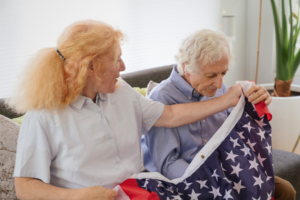
What is the Aid and Attendance program?
The Aid and Attendance (A&A) program provides a benefit paid by the Department of Veterans Affairs (VA) to eligible veterans and their surviving spouses to help with in-home care, assisted living, or nursing homes.
A&A is paid in addition to a veteran’s monthly pension or compensation.
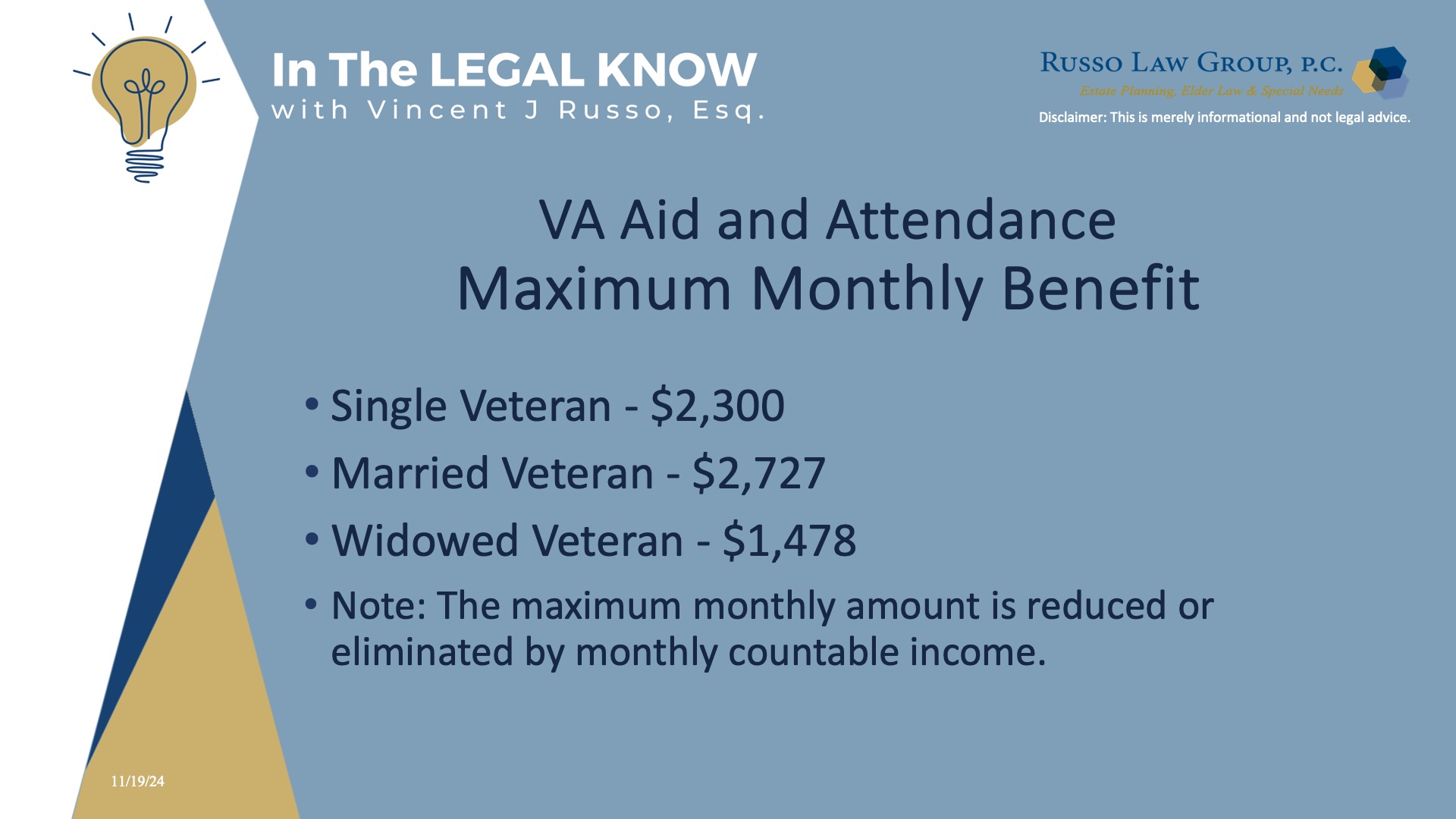
The current maximum aid and attendance monthly pension amount is $2,727 for a married veteran and $2,300 for a single veteran. For a widowed spouse who needs care the 2024 maximum benefit is $1,478 per month.
The maximum monthly amount may be reduced or eliminated by monthly household income.
Who is eligible for VA Aid and Attendance?
First, you must be a veteran; a person who served as a member of the Army, Navy, Air Force, Marine Corps, or Coast Guard, or as a commissioned officer of the Public Health Service, the Environmental Science Services Administration or the National Oceanic and Atmospheric Administration.
Wartime military service is a requirement for pension benefits. The veteran’s service must have been full time service, and the veteran’s discharge must have been “other than dishonorable.”
The Veteran must also meet certain medical requirements to qualify for aid and attendance. You may be eligible for this benefit if you meet at least one of these requirements:
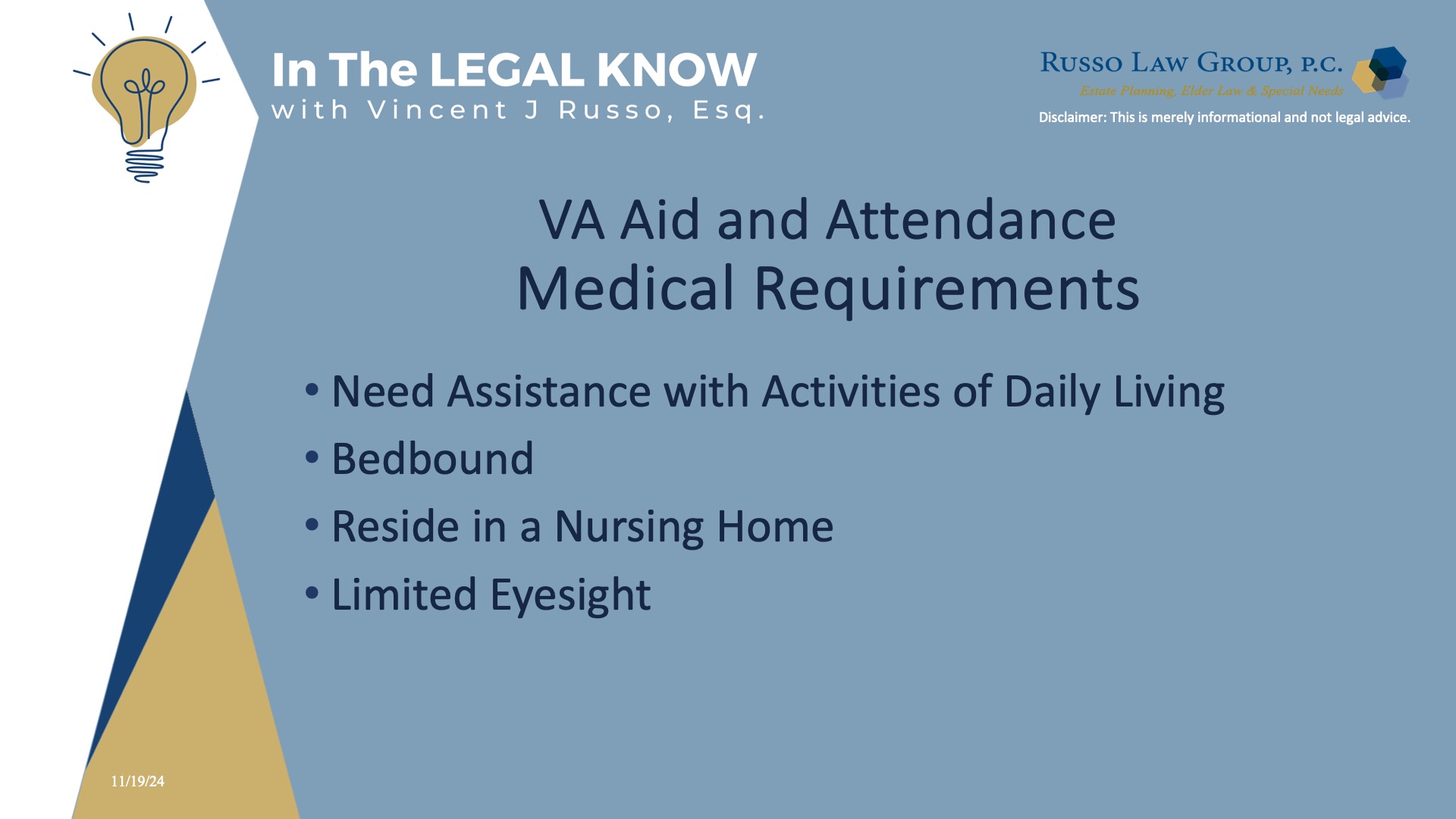
- You need another person to help you perform daily activities, like bathing, feeding, and dressing, or
- You have to stay in bed—or spend a large portion of the day in bed—because of illness, or
- You are a resident in a nursing home due to the loss of mental or physical abilities related to a disability, or
- Your eyesight is limited (even with glasses or contact lenses you have only 5/200 or less in both eyes; or concentric contraction of the visual field to 5 degrees or less)
Note: You cannot get Aid and Attendance benefits and Housebound benefits at the same time.
Are there financial eligibility rules to qualify for Aid and Attendance?
Yes, there are financial eligibility rules, and it can get quite complicated:
The Veteran (and spouse) cannot have assets in excess of $155,356 (2024), excluding the homestead to qualify for benefit. The V.A. will consider the liquidity and availability of the assets in order to determine eligibility for the pension.
The VA also implemented a three-year lookback period to see if assets were sold below market value or gifted in a way that reduced net worth below the upper eligibility limit.
Transfer subject to penalty can delay the start of VA pension benefit payments for up to five years.
There’s also an upper limit on monthly countable income minus certain expenses such as unreimbursed medical bills, prescription out-of-pocket costs and Medicare and private health insurance premiums.
The most valuable non-reimbursed medical expenses are those that recur on a regular basis. For veterans rated for aid and attendance or a homebound allowance, assisted living expenses, home care expenses, and nursing home expenses are all recurring medical costs.
The VA pays a benefit amount that make up the difference between recipients’ countable income and the monthly upper limit.
What steps can a veteran take to plan for the Aid and Attendance benefit?
If a veteran wants to plan for eligibility, the veteran can set up a Veteran Asset Protection Trust which can be funded with liquid assets and the veteran’s home. After three years from funding, the assets in the trust will not be counted for eligibility purposes.
How do you apply for Aid and Attendance?
There are several steps one will have to take to apply for Aid and Attendance.
The first step would be to go to the VA website (https://www.va.gov/) and download the application form “VA Form 21-2680”. You can have your doctor fill out the examination information section.
You can also include with your VA form: Other evidence, like a doctor’s report, that shows you need Aid and Attendance or Housebound care with the instructions.
Many applicants may wait as long as 9-12 months before they start receiving any kind of benefit. The VA will expedite your application if you are over 90 years old or in hospice so you can receive this monetary pension benefit more quickly.
Lastly, you can get assistance from a Veterans Service Officer at a VA regional office, an accredited attorney, an accredited agent, a representative from a service organization, or a dedicated elder law attorney who specializes in veterans’ benefits; they can also contact the VA benefits hotline at 1-800-827-1000 for general
Is my surviving spouse eligible for Aid and Attendance?
Yes, a widowed spouse of a veteran who needs long-term care may qualify for VA Aid and Attendance.
To qualify, the surviving spouse must meet the following requirements:
- Marriage: Be married to the veteran at the time of their death and for at least one year
- Single: Be single while applying
- Need: Need help with daily tasks like dressing and bathing, or need to stay in bed due to illness
- Requirements: Meet the medical and financial requirements
- Remarriage: If remarried after January 1, 1971 and before November 11, 1990, remarriage does not affect eligibility
The maximum monthly benefit for a surviving spouse is $1,478. The benefit can be used to pay for home care, adult day care, board and care, assisted living, and skilled nursing home care.
For more information, CLICK HERE to download our complimentary Veterans Benefits Guide.
We hope you found this article helpful. Contact our office today at 1 (800) 680-1717 and schedule an appointment to discuss what makes sense for you and your loved ones.

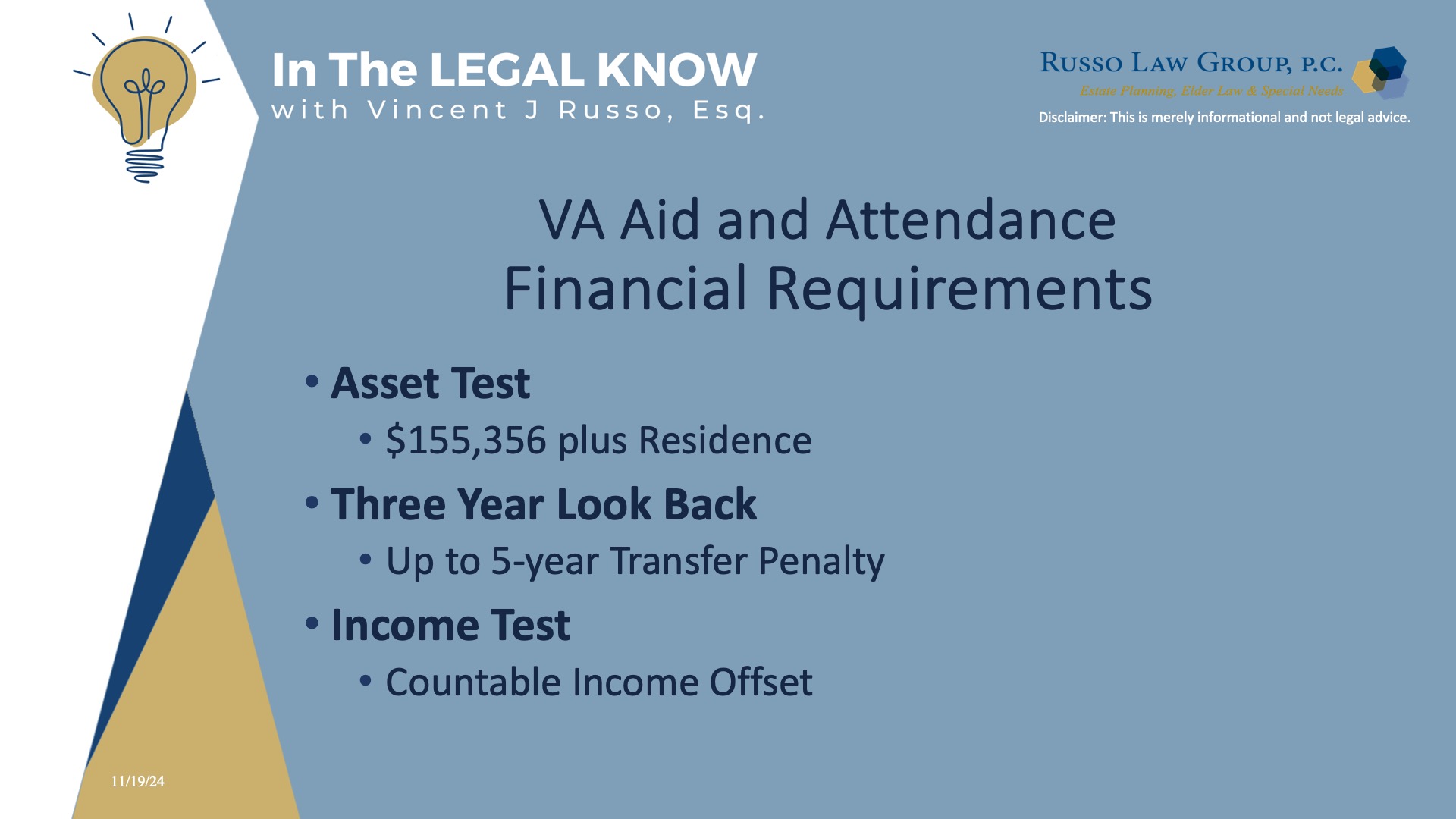
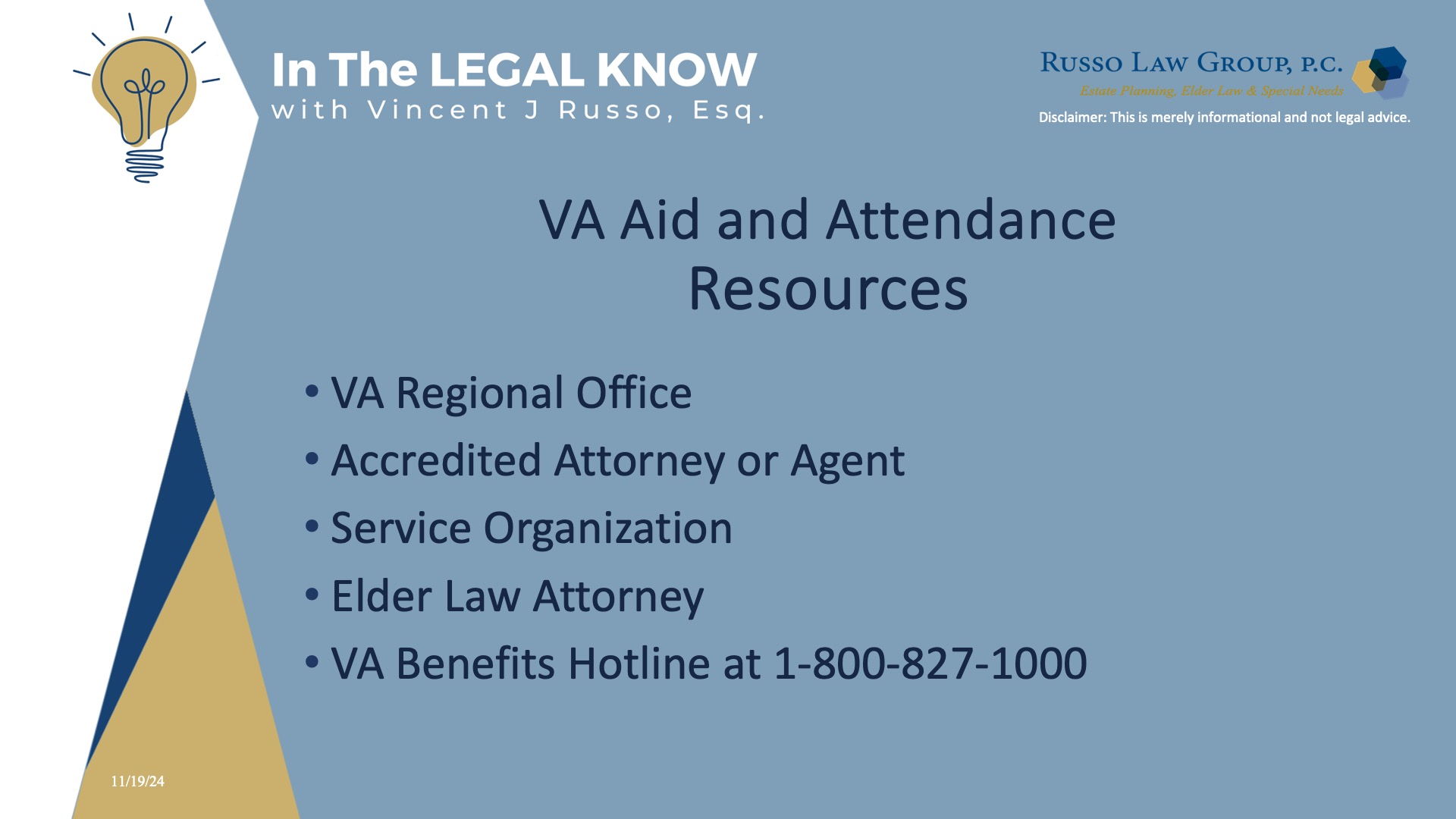


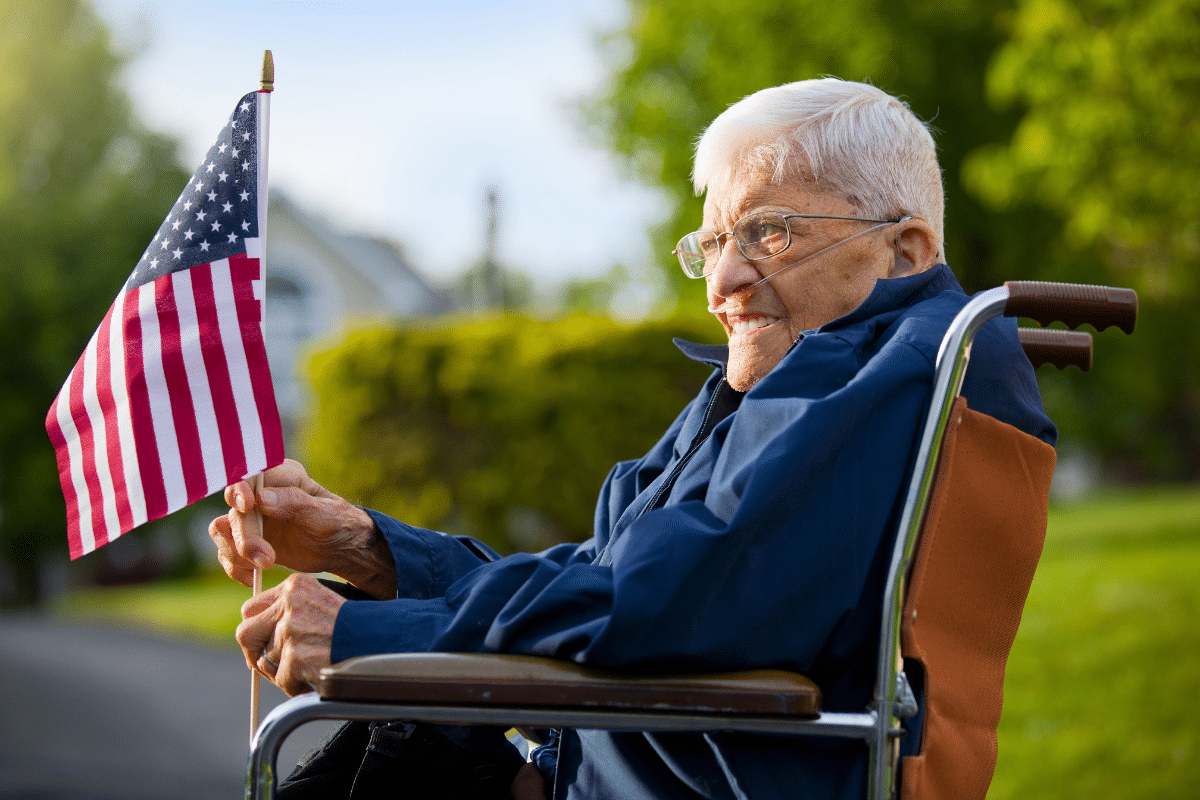
Comments (0)